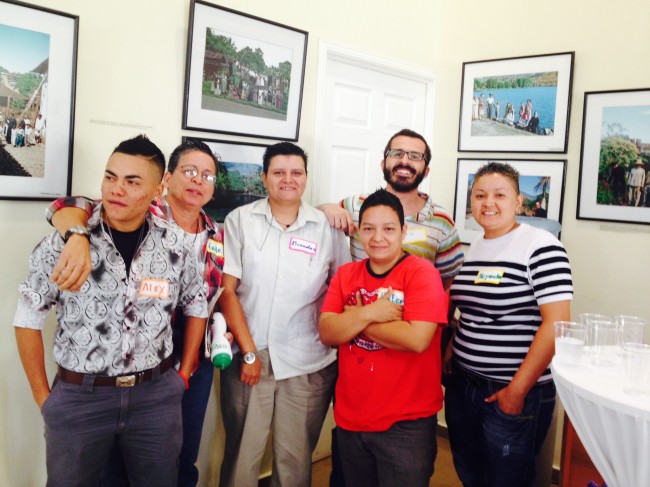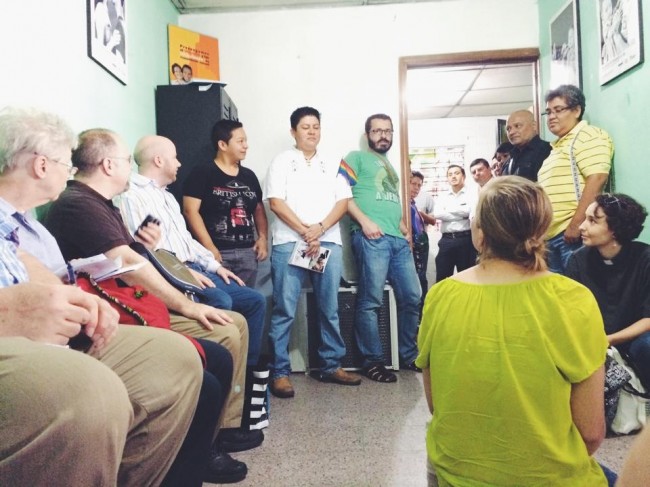This March four students took part in the first ever International Interfaith Delegation to El Salvador in support of LGBTQI activist and people of faith, and attended the inaugural Festival de Fe in San Salvador (this trip/event coincided with the annual recognition of the martyrdom of Monsignor Oscar Romero. The work happening in El Salvador is groundbreaking, as is the development of this partnership, and we are part of it.
This month, we share reflections from the students who were part of the delegation. Our fourth and final reflection is by Luis Menendez-Antuna, Vanderbilt University Graduate School, Department of Religion, Doctoral student in New Testament Studies. (Read the first reflection here, the second here and the third here.)
Body-Guerrilla
In the recent Western theological tradition, Latin-American Liberation Theology has best captured the plight of the downtrodden and has theorized the struggles of the poor against the capitalist system that has systematically relegated two-thirds of the world to live under non-livable conditions. Liberation theology has provided many Christians, among whom I count myself, with the political, ideological, and religious tools to make the Christian message relevant today for those who have been dispossessed. Those who have been trained in Liberation Theology are familiar with words and expressions like “option for the poor,” “ortopraxis,” or “koinonia” as words that designate different aspects of political activism. Those are words that are continuously heard in our meetings to celebrate the word of God, when we sit to organize campaigns for justice, or when go on the streets to demonstrate against unjust political decisions.
When I was in El Salvador learning on-site about the struggles, hopes, and dreams of the LGBTQI community, I had the honor to serve as a translator (From English to Spanish and vice versa) between a small group of North-American Transmen and an incipient group of Transmen from Salvador. It was a very emotional meeting for both sides because no group had previous knowledge about the difficulties that those who decide to defy the solid lines of gender configuration have to face in different parts of the world. Among the many interesting aspects, I would like to highlight one that has remained with me ever since and that has changed the way I look at the task of Liberation Theology for the future. I used to think that activism took place on the streets, but it had never crossed my mind that activism could take place in one’s body, at the very core of who one is.
There is no available treatment in El Salvador for those who decide to change their sex. Although female hormones are easily available, male hormones are difficult to obtain. This is because “masculinity” is something that is kept guarded as a sign of what privilege is. For those who identify as “transmen” obtaining testosterone is illegal, a daunting task. In this meeting, some men were giving advice to the people from El Salvador on how to carry out what I would call “body guerrilla,” that is, how to use your body to get what you want it to be. Some of the “guerrilla advices” included: how to fake symptoms so the doctor will give you the medication (for the wrong reasons), how to exercise certain parts of your body so your breasts are minimized, how to substitute one medication for another, how to overcome some secondary effects after surgery is performed, how to best take care of specific body parts that have not gone through surgery, etc. These men, all of a sudden, became guerrilla members advising each other on the best practices to fight a system that consistently denies who how they are and what their bodies need.

